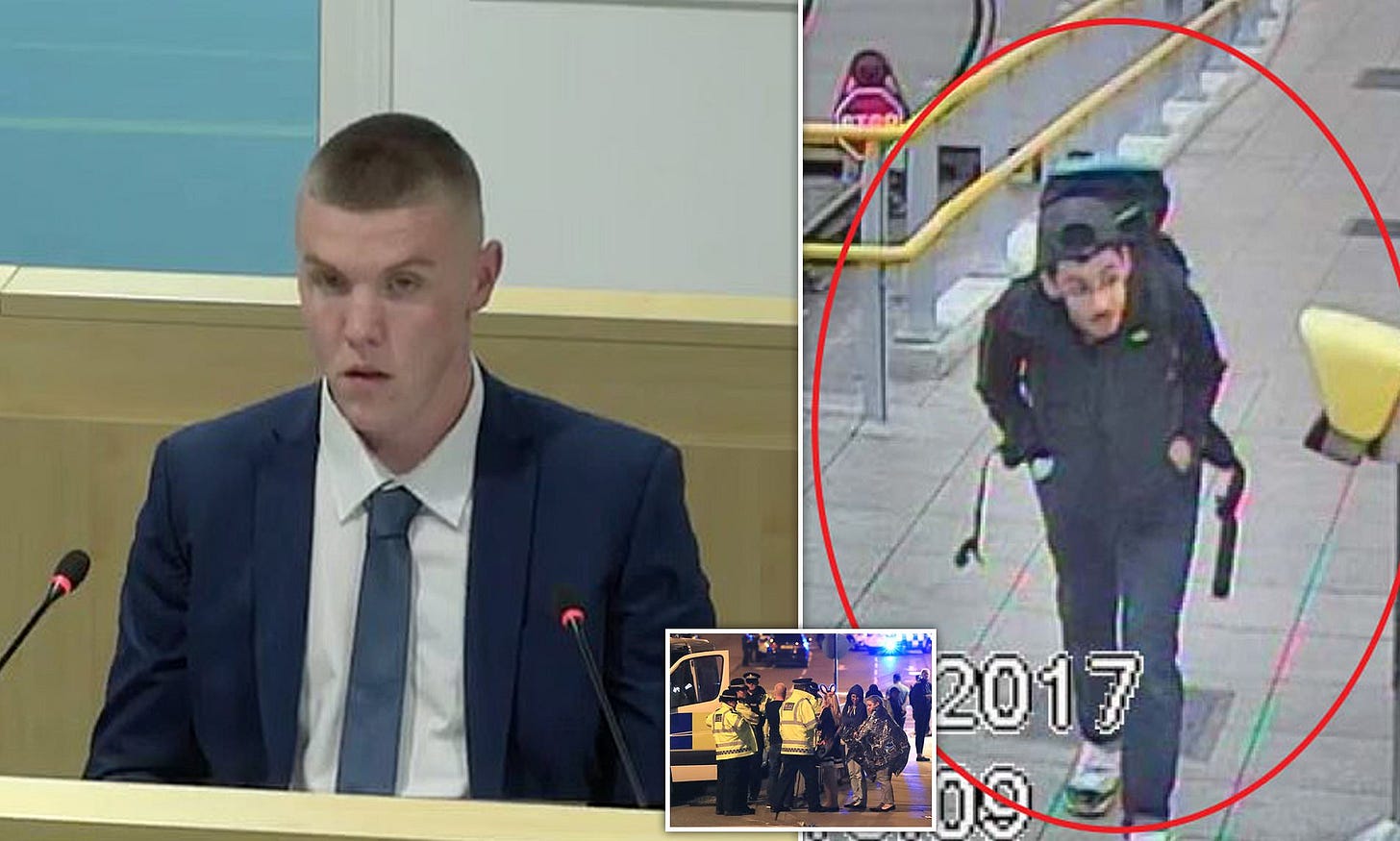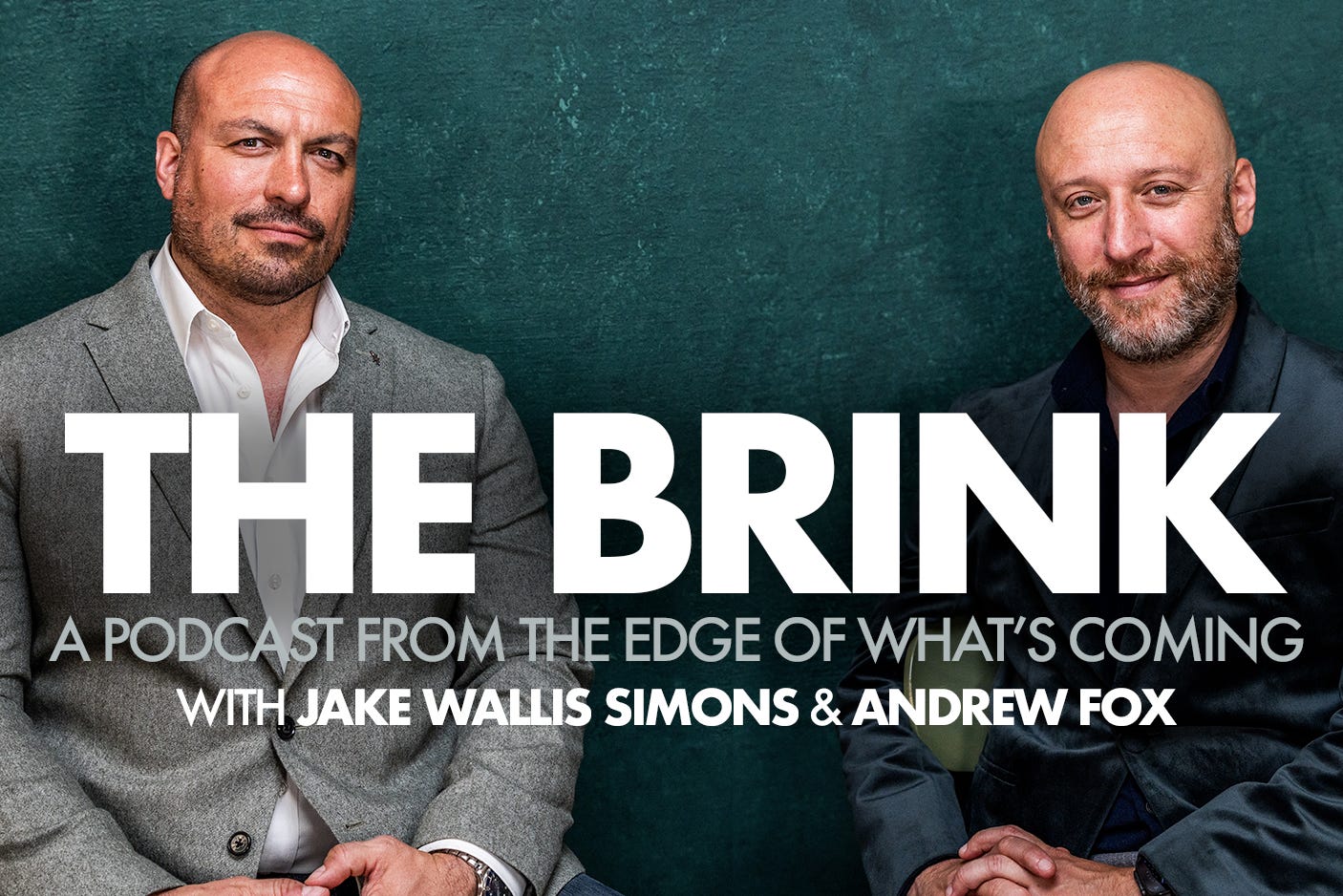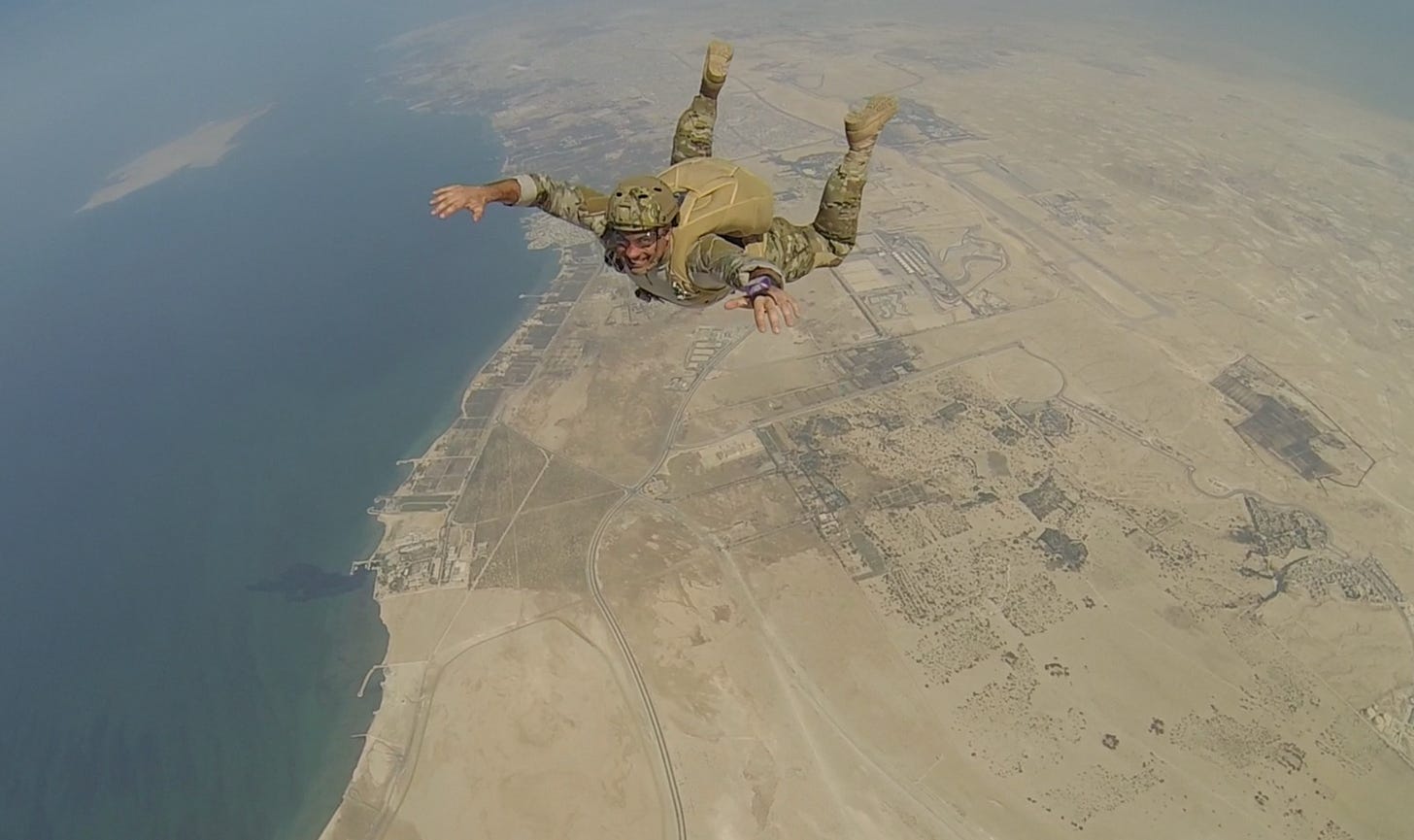Introducing The Brink. What is it? Well, not Rory Stewart or Alastair Campbell
It's time for something different in the podcast world.
It was many long months in the planning, but finally The Brink, the new podcast presented by myself and the former Parachute Regiment officer Andrew Fox, has launched. Episode One is available here, or wherever you get your podcasts.
So far, it’s been going gangbusters. Loads of uptake, loads of great feedback and very healthy analytics indeed. Turns out there’s something of a hunger for intelligent analysis of the pressing issues of the day that avoids the extremes of Piers Morgan on the one hand, and Rory Stewart and Alastair Campbell on the other. Who knew?
When people have asked about the podcast, the easiest way to tell them what we’re about has been just that: Not Rory Stewart and Alistair Campbell. Those characters, and the other centrist dad podcasters out there, might seem pretty benign and I’m sure they mean well. But in my view, they are responsible for a great deal of damage.
My new book, Never Again? How the West Betrayed the Jews and Itself, which comes out in fewer than two weeks, offers an example of this damage:
In February 2024, Rory Stewart appeared on the Making Sense podcast, presented by the philosopher and neuroscientist Sam Harris. For about twenty minutes, Harris – an atheist who is sceptical of Islam – attempted to discuss the scourge of jihadism in the Muslim world, only to have his questions deflected at every turn on the shield of Stewart’s basically fineism. ‘I think people don’t like foreigners trying to boss them around and they will reach for religion when it suits them,’ the former Conservative minister said at one point. ‘I think these phenomena are much broader and I don’t think they’re limited to Muslims.’
When it came to the conflict between Israel and Hamas, Stewart could find only equivalence, remarking: ‘There are lies from both sides, there are truths from both sides and nobody is giving a fair hearing to any of it.’ He went on to play down jihadi savagery by pointing out that the Vietnamese, Jews, Hindus and Buddhists had also been violent in their turn. Suicide bombing was ‘a relatively small component’, he argued, comparing it to the Germans who had killed themselves upon hearing of Hitler’s death in 1945. ‘Effective armies, great militaristic nations, are full of young men in particular who are comfortable dying,’ he said, effectively relativising jihadism out of existence.
The son of a senior British spy, who was a private tutor to Prince William and Prince Harry while he was studying at Oxford, even found a way to dilute the crimes of the young Muslim men who left the West to fight for the barbaric Islamic State. ‘The idea of educated, young men and a few women wanting to go off and do something crazy and idealistic and dangerous at the other end of the world is not that unusual,’ he pointed out. He even equated these people, who included the likes of Jihadi John – the terrorist from Queen’s Park in London who became notorious for beheading journalists and aid workers in Syria – to his own younger self, who had left Oxford and governed a province in Iraq. Whether serving Britain overseas or travelling illegally to join the world’s most savage jihadi state, the impulse was the same, Stewart suggested: ‘a combination of adventure, excitement, idealism, missionary zeal.’ So basically fine.
This insistence on denying any connection at all between suicide bombing and Islam might seem like an irritating but harmful quirk of the centrist elites, who reserve all their criticism for our own culture, all their enthusiasm for that of others, and all their condemnation for those who dare criticise Islam, whom they invariably label “Islamophobic”. However, this has had an extremely grave effect on society.
A terrible example came in 2017 when Salman Abedi, a twenty-two-year-old Mancunian of Libyan descent, murdered 22 children and adults in a suicide attack at an Ariana Grande concert. A public enquiry found that a security guard at the Manchester Arena, Kyle Lawler, failed to raise the alarm when he saw Abedi walking in with his heavy backpack because he worried that his “bad feeling” was an expression of “Islamophobia” in his unconscious.
“I did not want people to think I am stereotyping him because of his race,” Lawler said. If the intolerance of the tolerant had not robbed him of his judgment, the atrocity may have been limited or even prevented. Is there a connection between the intolerant tolerance cascaded downwards through society by the likes of Rory Stewart and the spiritual stasis of Kyle Lawler? It seems likely. As I write in the book:
All of this seems little more than irritating when considered in the bubble of the podcasting universe, where the main inhabitant is the commuting dad. It is beyond doubt, after all, that Stewart and his fellow travellers have benign intentions; they are simply articulating the accepted worldview of their class of centrist fundamentalists, all of whom are convinced of its morality. But their influence is significant. Between them, Stewart and Campbell alone have almost 1.6 million followers on X and their podcast has attracted more than 700,000 audio downloads per episode. This largely AB1 audience is educated, wealthy and influential in its own right, helping to cascade these views through society. Here lies its danger. One wonders how the frothy centrist dad contribution to the culture may have affected the mindset of Kyle Lawler, the security guard who failed to stop the Manchester suicide bomber in 2017 because he worried that he was being Islamophobic.
So when Andrew and I describe The Brink as “not Rory Stewart and Alastair Campbell”, we are making a more serious point that it may first appear.

Similarly, we are not Piers Morgan. This is perhaps an easier position to get across: it is obvious to everybody that the Morgan circus gives platforms to cranks, extremists, clowns and cretins in order to launder outrage for clicks. Which is a great shame, as he is, or was, a hugely talented journalist.
In a way, the Morgan phenomenon is a funhouse mirror response to the repression of centrist elites like Stewart and Campbell. We have been forced to swallow our patriotism and national identity for so long that it has created a groundswell of rage that – when combined with the age of the algorithm – is finding expression in the most superficial and combustible way.
How do we find our way back? That is what Andrew and I aim to explore in the weeks and months ahead, with such guests as Douglas Murray, Tom Holland, Bari Weiss, Ed Husain, Sir Niall Ferguson, Ayaan Hirsi Ali and Bernard-Henri Lévy.
But a big part of the podcast will also involve episodes like the first one, in which Andrew and I have a conversation head-to-head. With our backgrounds as a foreign correspondent (the video below shows me in a hairy encounter on the West Bank) and parachute regiment officer respectively, we have a unique perspective on the debates of the day, from migration to jihadism, Israel to Westminster politics.
As you will hear in Episode One, when coalition forces abandoned Afghanistan to the Taliban in 2021, Andrew organised an emergency rescue operation that saved hundreds of his friends and colleagues from the clutches of terrorists.
Similarly, when I was at the Daily Mail, I drew attention to the plight of an Afghan interpreter who had worked with then-Prince Charles, putting the lives of his family in danger of reprisals, and had since been rejected asylum in Britain. As a result of this pressure, the decision was reversed. We remain in touch to this day.
This is just one example of how Andrew and I have found ourselves with front seats during the biggest stories affecting the West today. Though to be fair, I have never jumped out of a plane.
All of this, I think, gives our perspectives and our podcast a unique approach. If the West is going to pull itself back from the brink, we need intelligent, balanced and grownup discussion from people who have lived the stuff they’re talking about. Download the podcast now and let us know what you think.




The Brink sounds like a ‘must listen’ for anyone interested in current foreign politics, especially that involving the Middle East.
The hard reality is that virtually all suicide attacks over the last 25 years or so, have been in the name of islam. So until the moderate Muslims speak up and deal with stopping these evil acts, Islam will only be seen as a danger to western society.
Couple that with the view that many Muslims from the world’s 57 Islamic countries are not happy in their own countries, and when they migrate to Western countries, they are not happy there either, and want to make change.
As regards the Middle East, I look forward to you both debating whether Qatar is an honest broker, or the root of evil, with Iran, in subverting Western politics and culture.